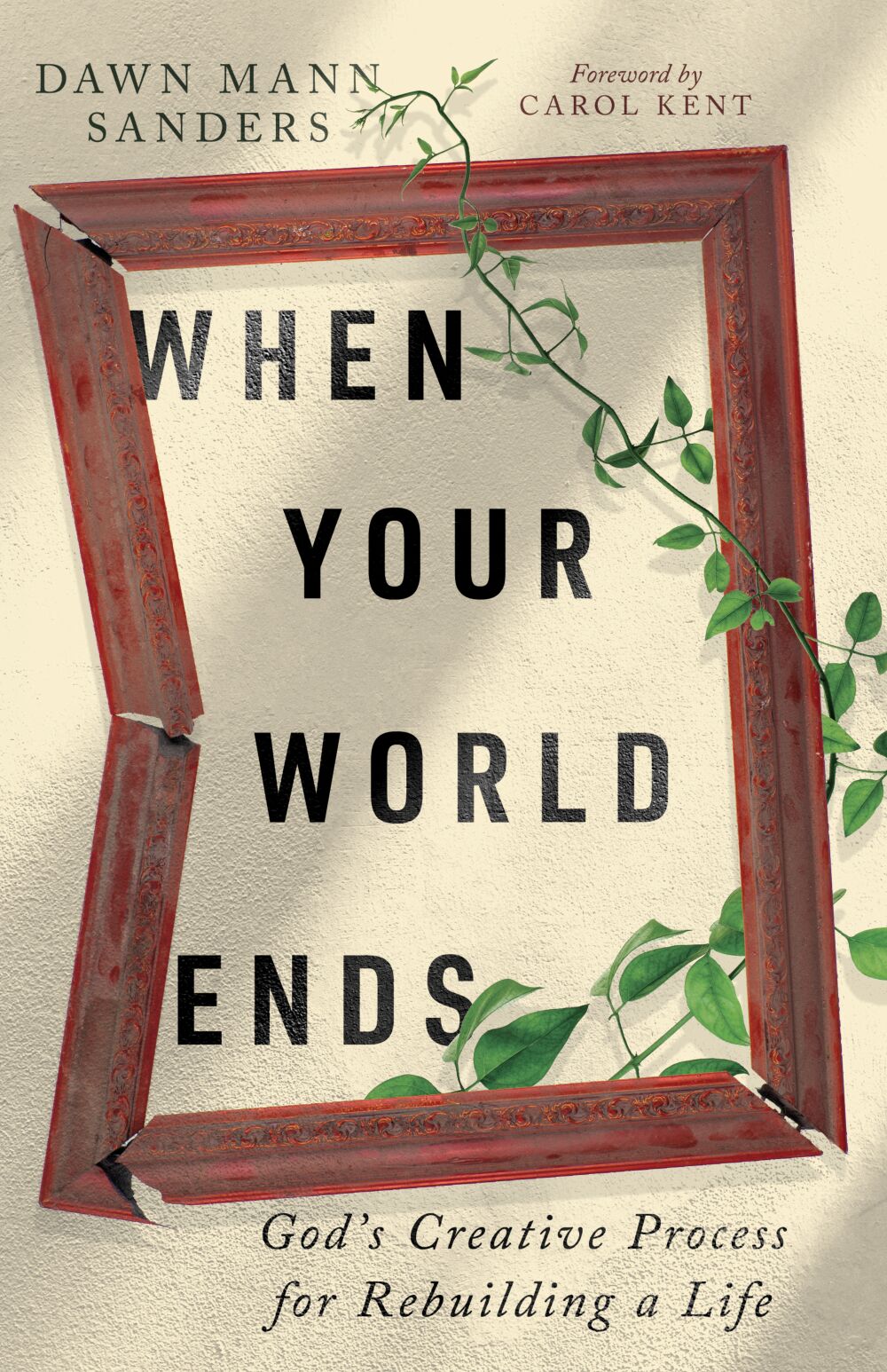After Reggie died, many well-meaning fellow Christians, members of my church shared what they thought were helpful sentiments based on their theology—their understanding of God’s nature. Now, I don’t fault their theology. I do, however, fault their timing.
I don’t fault their theology because technically, I agree with everything I heard. However, I question whether that theology should have been shared during the height of my pain. Was sharing this theology helpful to me considering the amount of pain I was in immediately following Reggie’s death? I question its benefit because hearing it didn’t help me feel good—or even better. Simply put, I didn’t hear it as good. I see the goodness now, but not then—not in the peak of my pain. My hearing was muffled by my pain.
What is good? What does it mean to be good biblically? Share on XWhen someone said, “God doesn’t make mistakes.” I heard, “So, Reggie is supposed to be dead. Reggie’s death is part of God’s plan for my life.” Needless to say, this didn’t leave me a big fan of God’s plan at that time.
When someone said, “God is still in control.” I heard, “Still!?! So, He was in control when Reggie died and gave Satan permission for Satan to kill Reggie. What’s He going to allow next? Is this supposed to be comforting?”
And when someone shared my all-time favorite—I’m being sarcastic, “God works all things together for good.” I heard, “Good!?! This is for my good. God has a weird sense of humor about what’s good.”
Has anyone else felt this way? Or had these kinds of thoughts?
These thoughts made me wonder: What is good? What does it mean to be good biblically?
Part 9 of Choosing Wisely
What it means to be good is on my mind again today because good and evil are the latest concepts in our deep dive into Genesis 2:15-17 as part of our series on making decisions when creating our new lives. Today’s exploration of knowledge is the ninth article in this series.
Then the Lord God took the man and put him in the garden of Eden to tend and keep it. And the Lord God commanded the man, saying, "Of every tree of the garden you may freely eat; but of the tree of the knowledge of good and evil you shall not eat, for in the day that you eat of it you shall surely die."
~ Genesis 2:15-17
This passage of Scripture contains the first choice God gave to humanity, the choice of selecting our food. As a passage about choice, we can extract guidelines from this passage we can use to choose the activities that make up our lives.
What Is Good?
What does good mean? My answer is: It depends on how you frame the question. If I ask: What is good? Or what does good mean? I think most people would say things like “pleasing,” “desirable,” “welcome,” “useful,” “enjoyable,” “satisfying,” and “advantageous.” And in some contexts, this would be true. However, if I ask: What does it mean to be good? I think most would change their answers to words like “honest,” “just,” “virtuous,” “excellent,” “pure,” “noble,” “righteous,” and “holy.”
The first set of terms defining good speaks more to emotions and the second set speaks more to qualities or attributes. The former speaks more of how we feel about the noun that good is describing; whereas, the latter set speaks more to how we see the noun being described.
And what a difference a change in perspective makes.
And in the context of the tree of the knowledge of good and evil, good and evil fall squarely in the realm of the latter set—the set that falls in the realm of morality. Morality is the set of principles defining right and wrong.
For instance, I love sweets because they taste good. So, I desire sweets. Sweets please me. I enjoy them and find them satisfying, but should I eat sweets at every meal? Or even every day? Would that be good? Would it be good for me to eat sweets every day?
I think the majority of us would agree eating sweets at every meal—or even every day—probably isn’t a good idea for most people. And there’s the rub. That is the difference.
And what a difference a change in perspective makes.
What is Evil?
We don’t have the same problem defining evil as we do defining good. When the uncle of one of the young victims described the shooter who massacred 19 small children and two adults in Uvalde, Texas as “just evil” everyone knew what he meant. We understood the wicked nature of the tragedy that catastrophically changed the lives of their loved ones, rocked the close-knit community of Uvalde, and triggered our country which was still reeling from the wicked carnage in Buffalo that occurred just ten days earlier.
Unfortunately, and against God’s original plan for us, we’re all too familiar with evil.
It’s evil that comes to kill, steal, and destroy. It’s evil that caused the catastrophic events that brought far too many of us to this article looking for biblical insights on how to rebuild our lives. And it’s evil that God was protecting us from when He commanded Adam, and later Eve, not to eat of the tree of the knowledge of good and evil.
Unfortunately, we’re all too familiar with evil.
God issued the command because He didn’t want us to experience evil.
We are not supposed to experience evil. That’s why I struggled with the theological statements spoken to me in the days following my tragedy—Reggie’s death.
Evil.
I was created to experience only good—like virtue. You were created to experience only good—like excellence. We were created to only experience good—like righteousness.
And when we experience evil, we struggle with understanding good—like God. We struggle with understanding His virtue. We struggle with understanding His excellence.
So, if you are struggling right now to understand God—and His qualities, it’s because of evil.
The answer is good. The solution is God. Share on XYet, when you’re experiencing evil, there’s only one answer—only one solution.
And the answer is good.
In other words, the solution is God.
So, as I leave you today, I do so pointing you to a guideline extracted from today’s Scripture that’s very good:
Guideline 18: Choose activities that lead you away from evil and towards good.
The “Choosing Wisely” Series:
- Part 1a – Choosing Wisely
- Part 1b – Getting to the Root
- Part 1c – Fueling Your New Life
- Part 2 – A Habitat for Humanity
- Part 3 – The Order of Rest
- Part 4 – The Right Conditions for Rest
- Part 5 – What’s the Best Decision-Making Process for Creating New Lives?
- Part 6 – Five Freedoms When Creating a New Life
- Part 7 – The Risks of Giving Into Temptation
- Part 8 – How Knowledge Plays in Decision Making
- Part 9 – How Morality Applies to Decision Making
- Part 10 – Biblical Concepts of Time When Making Decisions
- Part 11 – Some Certainties We Have in This Life
- Part 12 – How Will Your Relationship End?
COMPLETE LIST OF GUIDELINES
Guideline #1: Choose activities that align with our assignments.
Guideline #1a: The availability of activities that align with our new lives depends on the level of effort we put into completing our assignments.
Guideline #2: Choose activities that support our assignments.
Guideline #3: Choose activities that provide what our lives and assignments need to live, grow, and stay healthy so that we can produce the best fruit.
Guideline #3a: Choose activities that balance the things related to our assignments that we want to do with the things related to our assignments that we need to do.
Guideline #4: During seasons of plenty, choose activities that for seasons of scarcity by storing excess resources.
Guideline #5: Choose activities that are fueled or empowered by the Son.
Guideline #5a: Choose activities that are fueled by clean energy—energy that doesn’t pollute the environment and has a positive impact on the environment by counteracting the pollution produced by “dirty energy.”
Guideline #5b: Engage in activities that are fueled by renewable energy—energy that is never depleted or is constantly replenished.
Guideline #5c: Choose activities that are fueled by universal energy—energy that is accessible anywhere.
Guideline 6: Choose activities that worship and serve the Lord.
Guideline 7: Choose activities that obey the Lord’s commands.
Guideline 8: Choose activities that are enjoyable and satisfying.
Guideline 9: Choose to complete activities in order.
Guideline 10: Choose to rest before beginning your assignments.
Guideline 11: Choose to rest your new life on a solid, unchanging foundation.
Guideline 12: Always start with God.
Guideline 13: Choose the best option.
Guideline 14: Choose activities that allow you to maximize your power and influence.
Guideline 15: Weigh the risk before choosing an option.
Guideline 16: Pay attention to your Father’s instructions to know understanding.
Guideline 17: With all your getting, get understanding.
Guideline 18: Choose activities that lead you away from evil and towards good.







